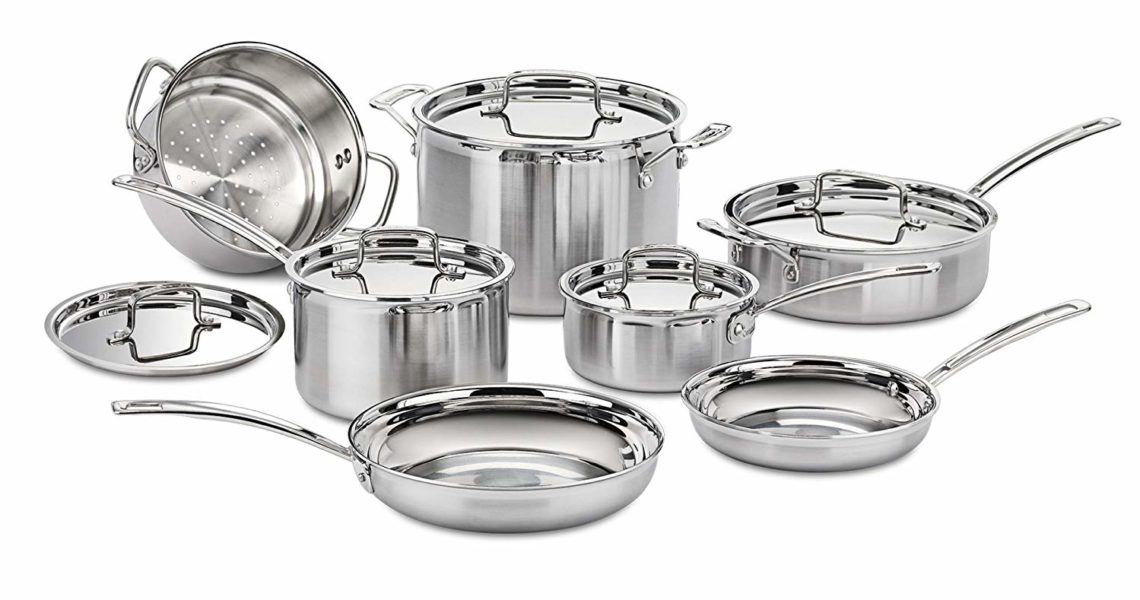
Non-Toxic Cookware
Did you know that everyday cookware could be harmful to your health? Non-stick cookware can be made with harmful chemicals known as perfluorooctanoic acid (PFOA) or polytetrafluoroethylene (PTFE, or Teflon). Teflon is one of the most popular used non-stick coatings. When heated to high temperatures, it can release dangerous fumes that have been found to possibly cause cancer and other health problems including flu like symptoms. Cookware can also contain dangerous heavy metals that can flake off into your food harming your health.
“…can release dangerous fumes that have been found to possibly cause cancer and other health problems…”
According to the American Cancer Society, The International Agency for Research on Cancer (IARC) has listed PFOA as possibly carcinogenic to humans.
This post may contain affiliate links and we may earn compensation when you click on the links at no additional cost to you. As an Amazon Associate I earn from qualifying purchases.
Due to the risk of injury to human health and to the environment with the exposure to PFOA, the EPA (Environmental Protection Agency) instructed companies to eliminate PFOA from their products by the year 2015. That was only a few years ago. Many of us most likely have non-stick cookware made before 2015. Even current cookware you can buy can still be harmful to your health due to other chemicals and heavy metals even if it lacks PFOA. So what cookware is safe to cook with?
Safer choices:
- Stainless Steel (SS)
- Although the risk is low, poorly constructed stainless steel cookware can potentially leak a small amount of nickel into food. Choose high quality stainless steel with a grade of 304 or higher quality. Most SS are listed as 2 numbers, for example 18/8 or 18/10 (most popular types of the 304 series). The first number is the amount of chromium and the second number is the amount of nickel present. So 18/8 stainless steel has 18% chromium and 8% nickel.
- SS alone does not provide the best heating so most SS cookware is made of tri-ply construction. If it says the cookware is encapsulated by aluminum this means that an aluminum core is sandwiched between two layers of stainless steel allowing the heat to distribute evenly across the pan. Since the aluminum is between 2 layers, the aluminum does not react or come into contact with the food.
- Make sure to properly take care of the stainless steel so that it does not flake or damage/break down the cookware
- $$ middle priced
- Recommended choice: Cuisinart Stainless Steel 12-Piece Cookware Set
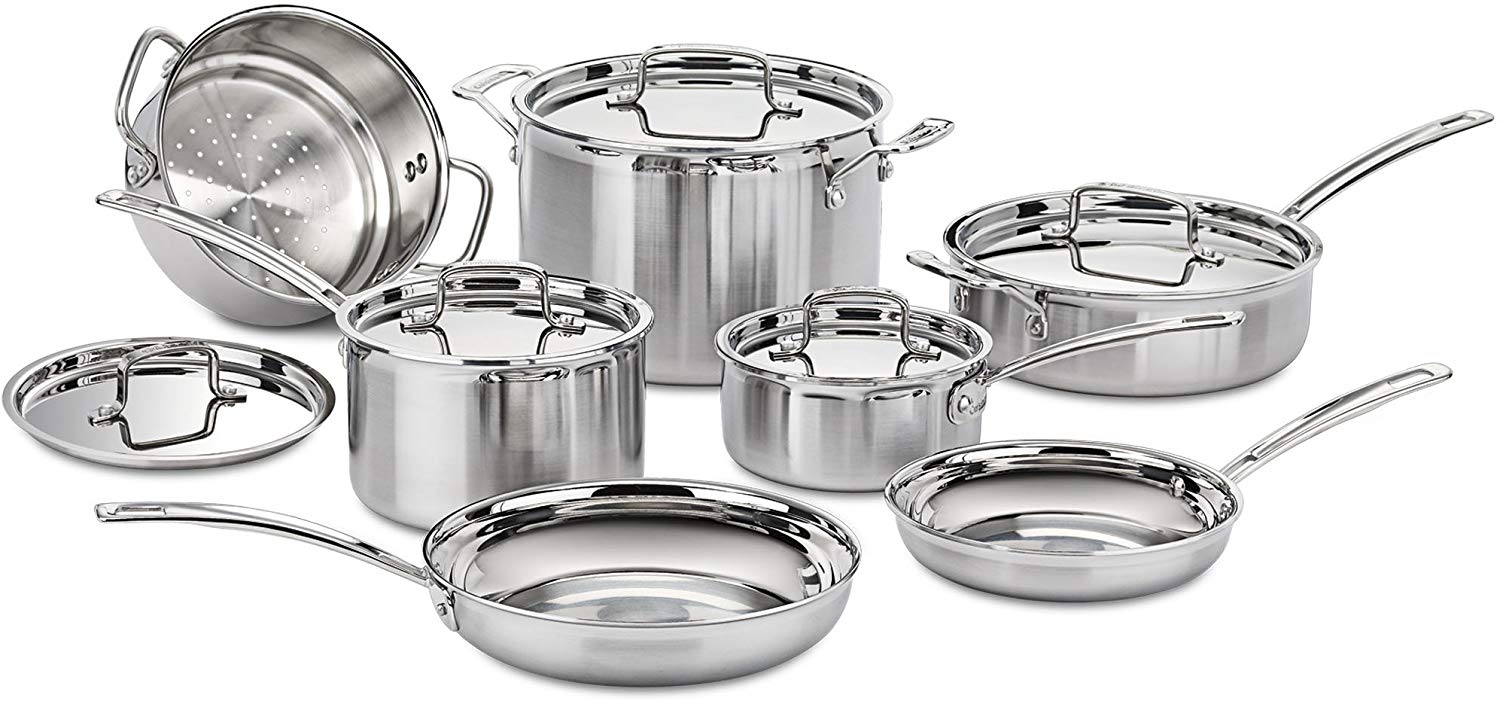
- Affordable choice: Michelangelo Stainless Steel Pots & Pan Set
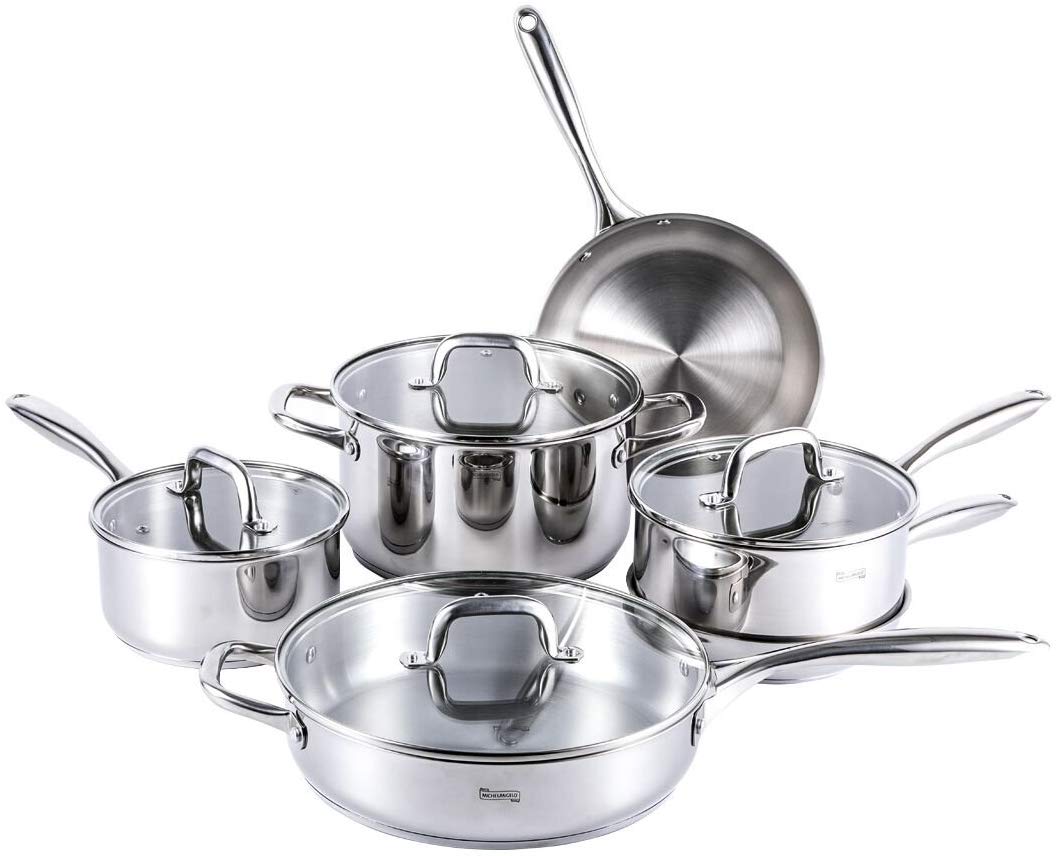
- Expensive, heavy duty choice: Kitchara Stainless Steel Cookware Set, 10 Piece, 5 Ply
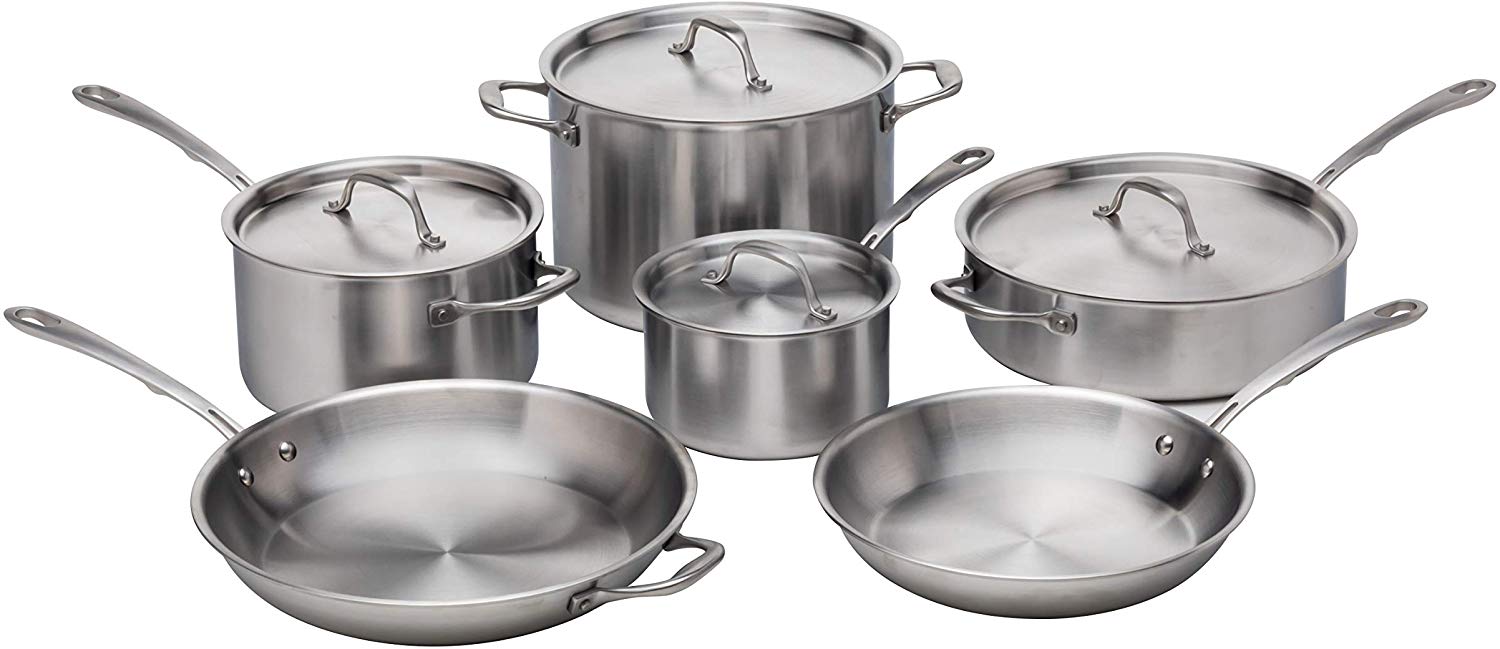
- Cast Iron
- Provides extra iron to our diets, avoid using if you have high blood iron levels
- Can switch between cast iron and other cookware choices to avoid exposure to high iron levels if that is a health problem you have
- $ affordable
- Recommended choice: Set of 3 Pre-Seasoned Cast Iron Skillets
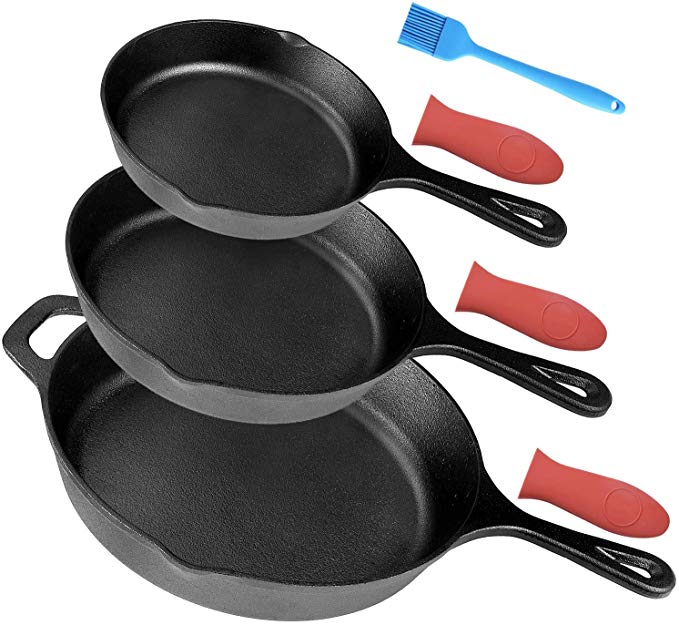
- 100% ceramic cookware
- No PFOA, PTFE, or Thermolon coatings
- Avoid low-quality glazes/coatings containing lead
- Avoid ceramic coated cookware as they are usually made with an aluminum surface; choose 100% ceramic, non-coated
- $$$ expensive
- Recommended choice: Xtrema Ceramic Cookware (non-reactive, no leaching)
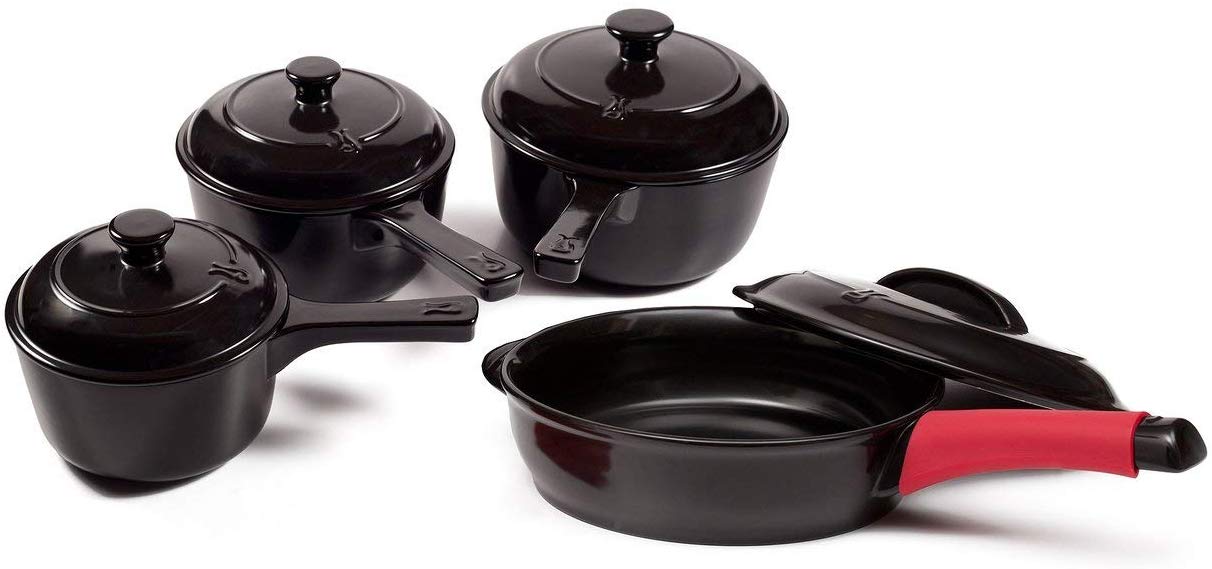
- Tempered Glass
- no leaching metals
- scratch resistant
- versatile use- stovetop, fridge, microwave
- $$ middle priced
- Recommended choice: Luminarc Vitro Blooming Heat-resistant Glass Cooking Pot (2L)
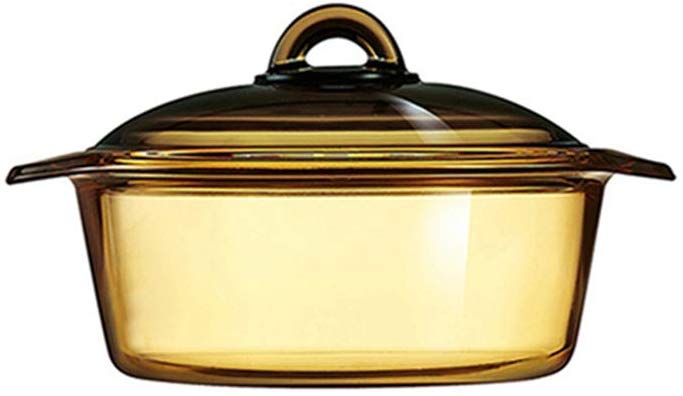
- 100% Silicone
- Choose food grade 100% silicone and BPA free
- $ affordable
- Recommended choices: AmazonBasics Silicone Baking Mat Sheets, Set of 3
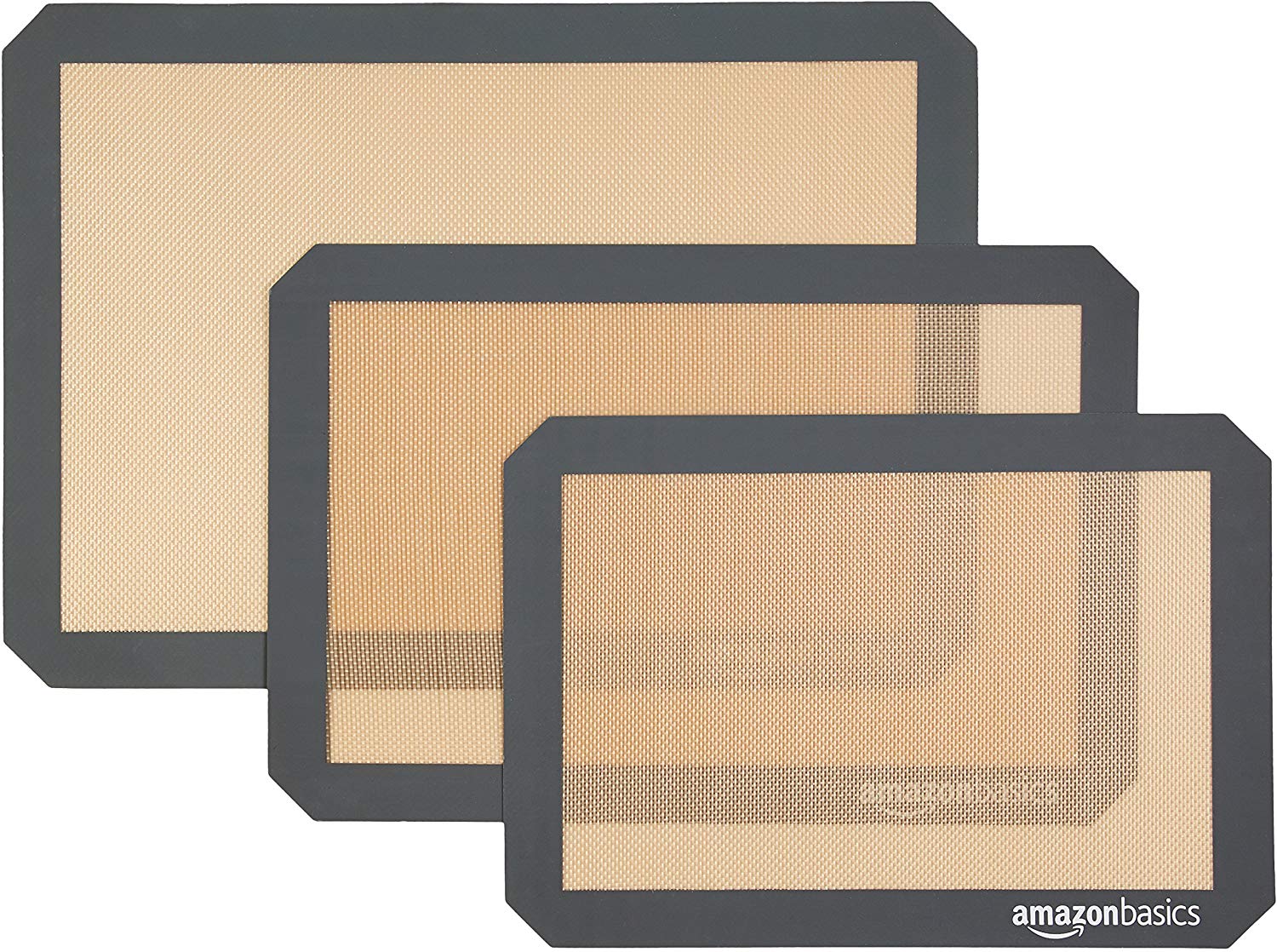
Toxic Choices:
- Non-stick pans
- pans listed as having non-stick chemical coatings such as perfluorooctanoic acid (PFOA) or polytetrafluoroethylene (PTFE, or Teflon)
- Aluminum
- aluminum is a neurotoxin (has been linked to Alzheimer’s disease)
- cooking with acidic foods, like tomatoes, can cause more aluminum to leach into the food when cooking
- Copper cookware
- toxic heavy metal
- Ceramic with non-stick coating
- tend to have lead, cadmium, and aluminum
- Low quality stainless steel
- may have higher levels of nickel
If you DO have non-stick pans:
- Use appropriate utensils so that the coating does not scratch off (no metal or sharp utensils)
- Avoid cooking at high temperatures or overheating
- Hand wash instead of using the dishwasher (dishwasher uses high heat)
- Get rid of damaged pans that have scratches or are peeling away as the coating could leach into the food
https://www.cancer.org/cancer/cancer-causes/teflon-and-perfluorooctanoic-acid-pfoa.html
http://static.ewg.org/reports/2003/canaries_in_the_kitchen/infographic_thermometer.pdf
https://universityhealthnews.com/daily/memory/aluminum-linked-to-alzheimers-disease/

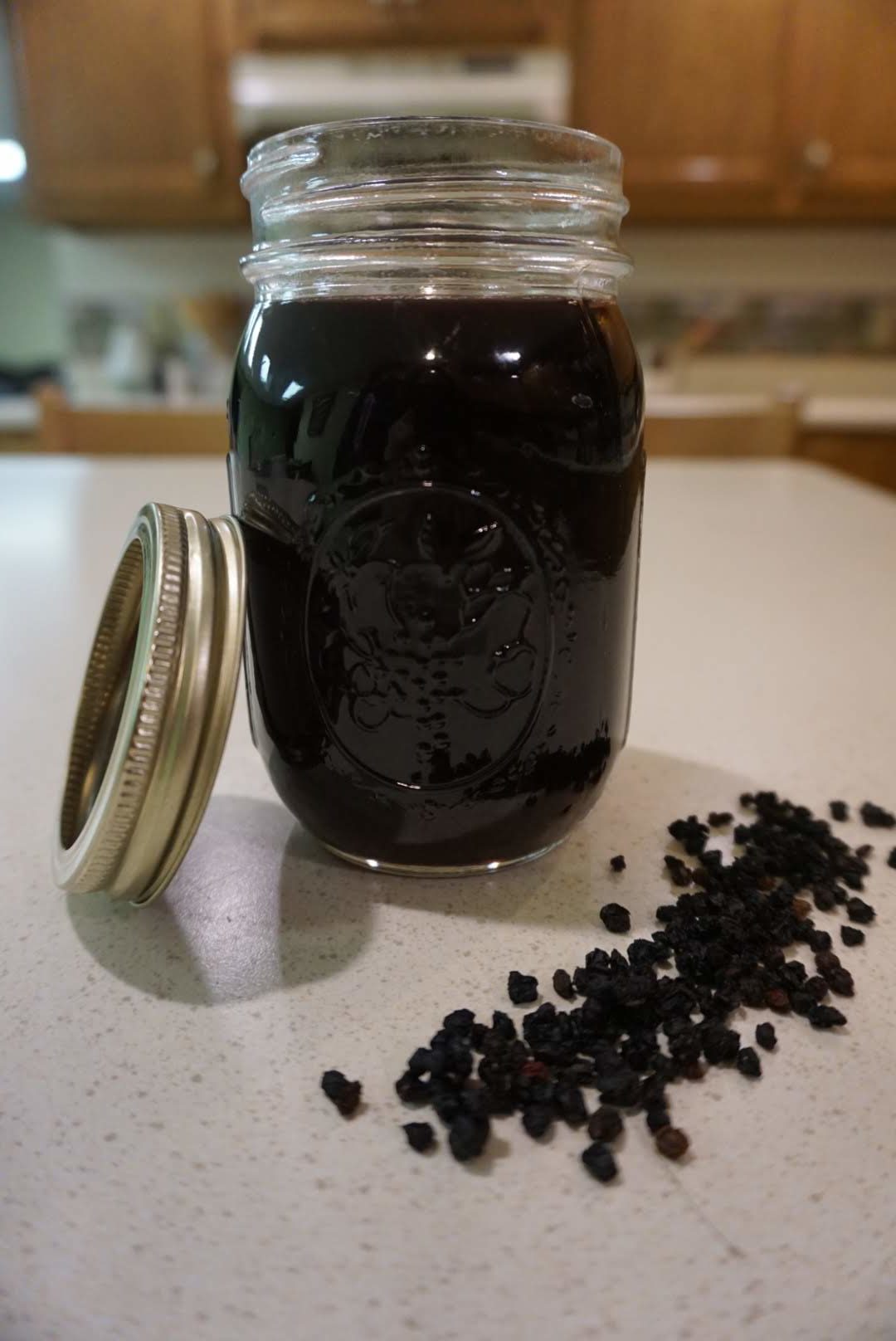
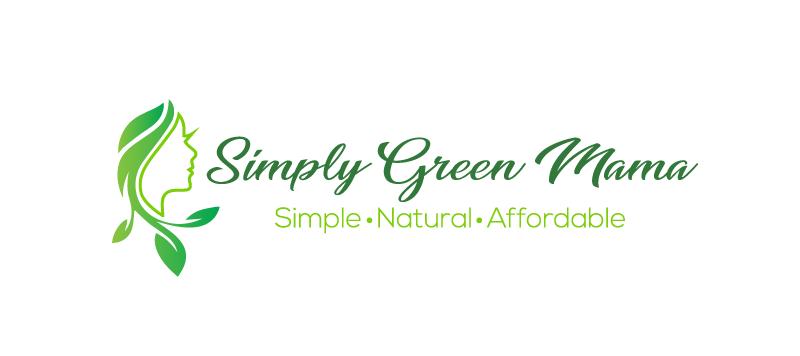
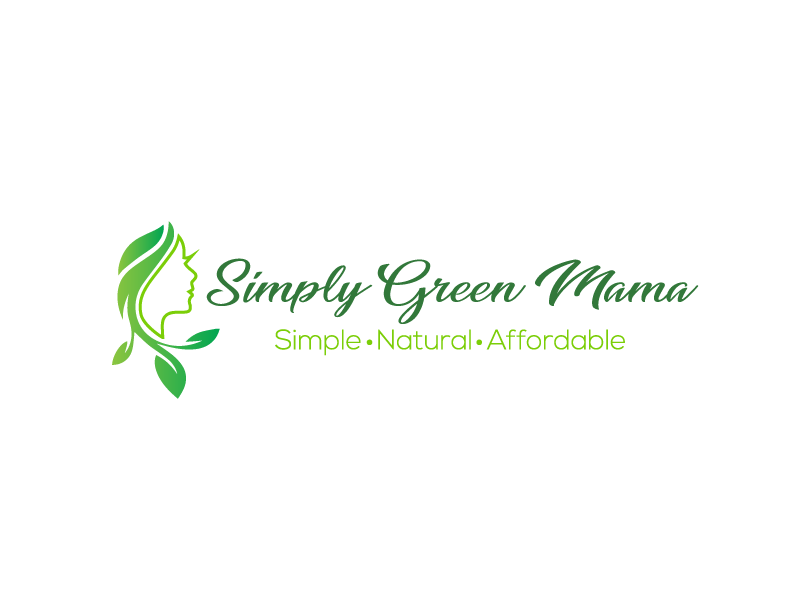



2 Comments
Alice Carroll
Thanks for the tip that stainless steel pans would suffice when shopping for non-toxic cookware so I don’t have to worry about them being hard to find. I’m currently stocking up on cooking supplies because I’m planning to launch my own food truck business later this year or early next year. Making sure that the food I make is not harmful to anyone would be something I should always put as a priority.
Deserae
You’re welcome! Good quality stainless steel pans are a great choice! That is wonderful you want to make food that is not harmful to your customers! 🙂